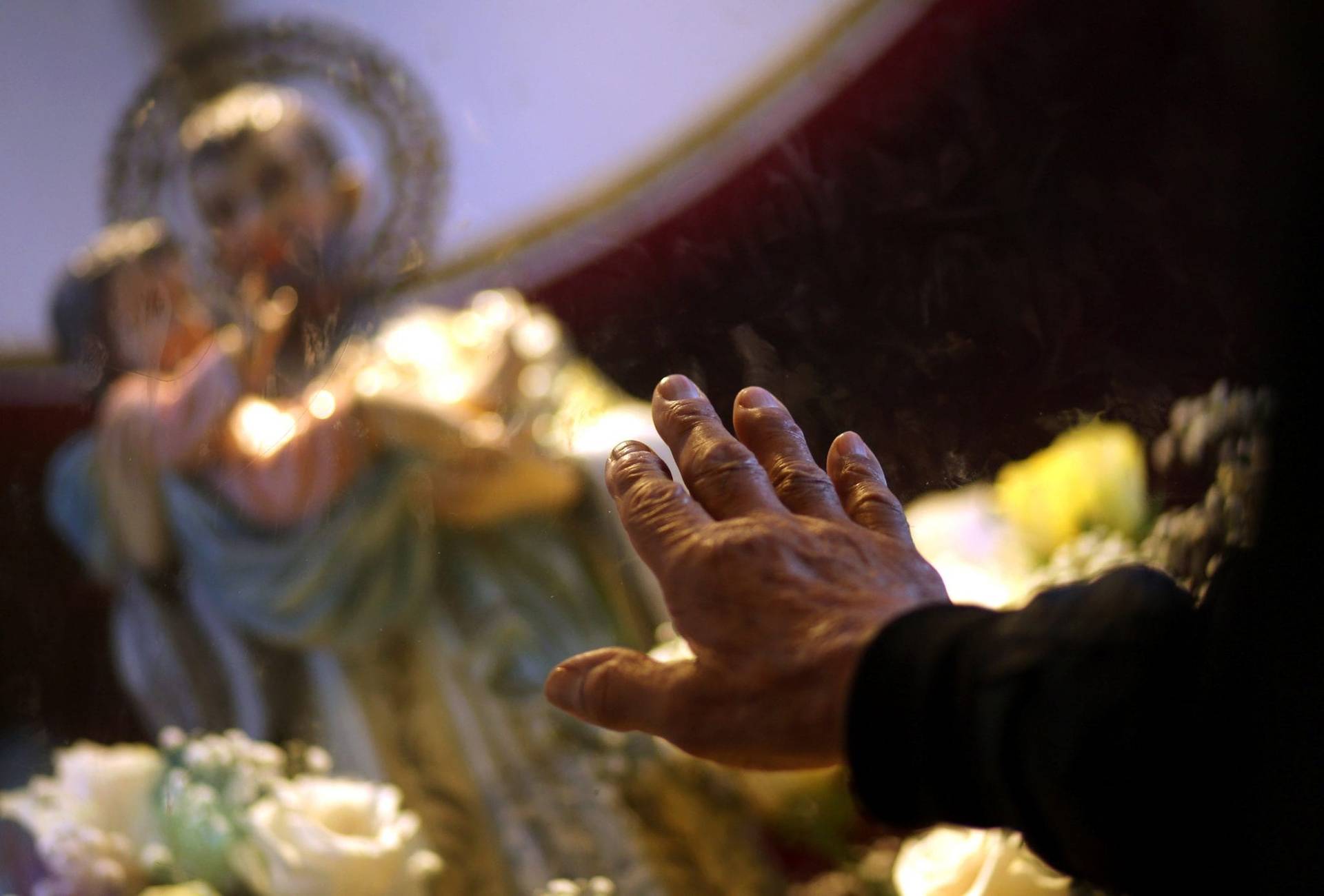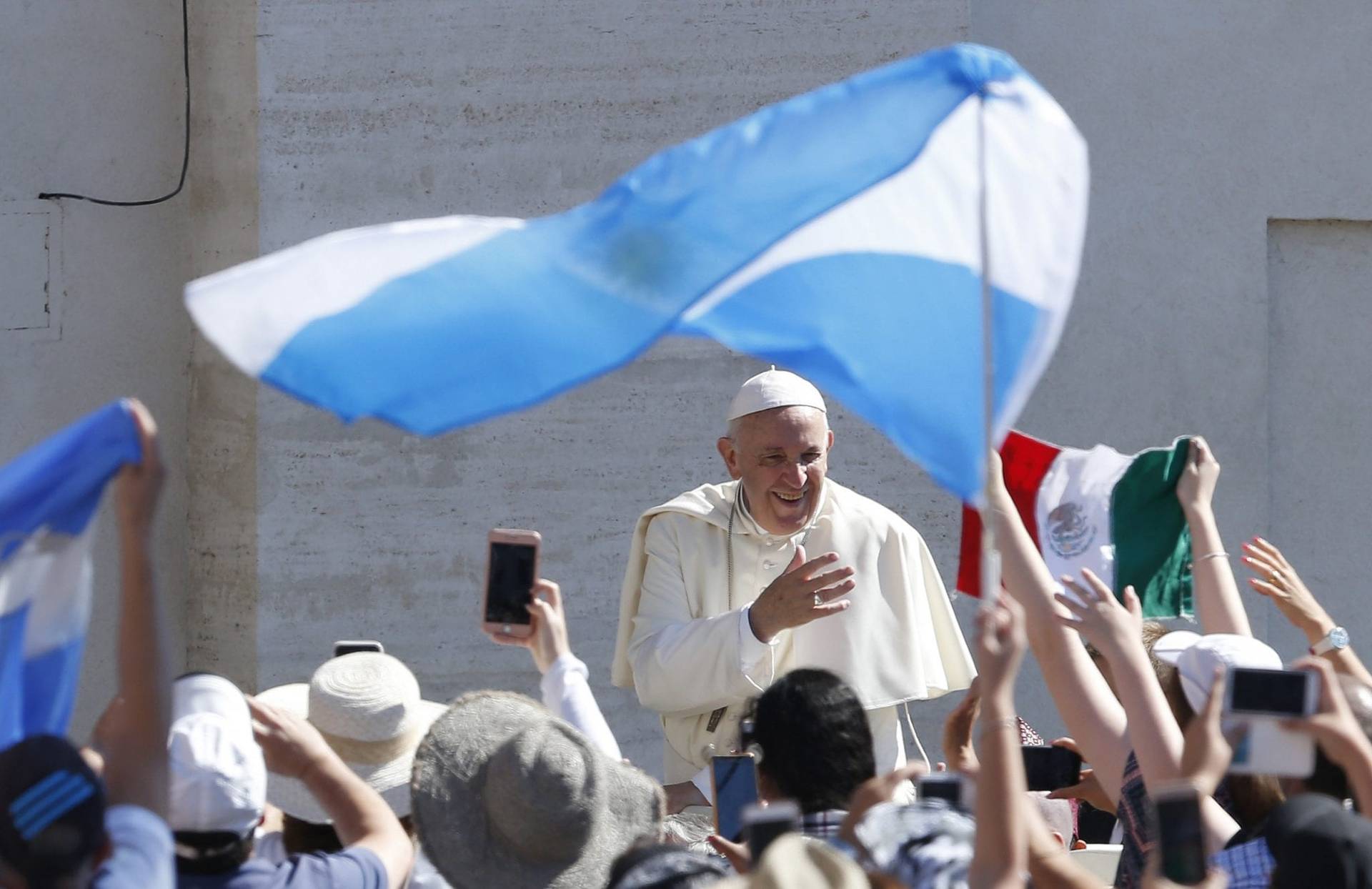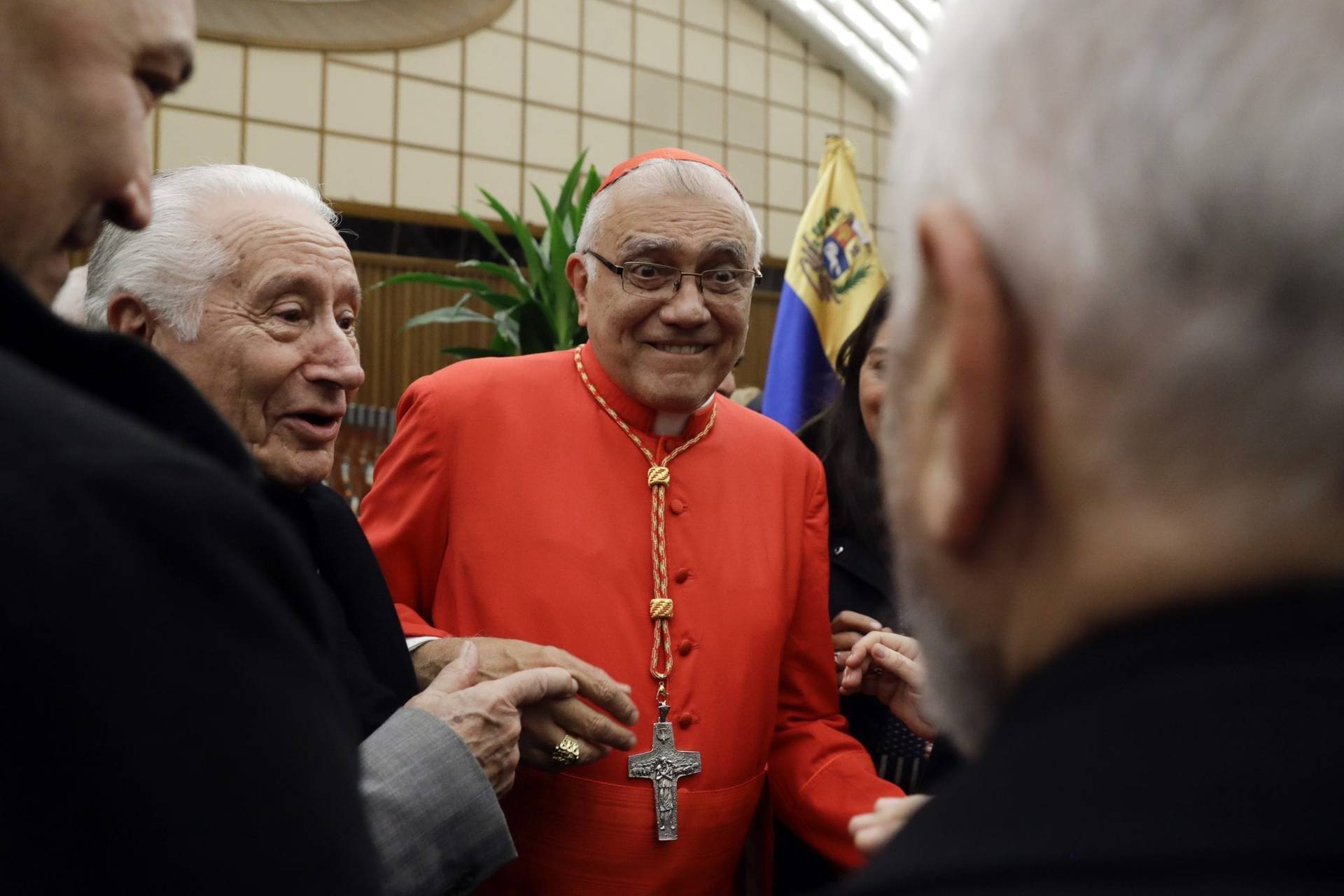SAN FRANCISCO, Argentina – Although by now Catholics in some parts of the world have lived with the ferment caused by revelations of clerical sexual abuse for decades, a bishop who heads a commission for preventing abuse in Argentina says that in Pope Francis’s native country, the crisis is “just beginning.”
“It’s not that the abuses are beginning, but society’s awareness, with cases becoming public,” said Bishop Sergio Buenanueva, of San Francisco, in the region of Cordoba. “The cases that expose this problem to the public produce a domino effect which, I believe, is positive.”
Buenanueva also told Crux that while he believes Pope Francis is having a deep impact on the local church, no pope, even history’s first from Argentina, has the capacity to reverse a centuries-long trend of secularization.
On the abuse crisis, the bishop insisted that transparency is healthy.
“In the first place, it’s positive for the victims, who’re now being heard by the Catholic Church and society at large,” he said. “The media has been part of this, and the justice system is doing its job too, with priests being condemned with adequately harsh punishments.”
Buenanueva is the president of the Pastoral Council for the Protection of Minors and Vulnerable Adults of the Argentine bishops’ conference, a commission to which he’s belonged since he was made a bishop by Pope emeritus Benedict XVI in 2008.
Until recently, there were only a handful of known cases of priestly abuse in Argentina, but more and more are becoming public. They include some notorious ones, ranging from Bishop Gustavo Zanchetta to the Provolo institute, where several Church personnel are accused of abusing dozen of deaf children.
RELATED: Survivor asks Pope to back bill ending statute of limitations for abuse
Speaking with Crux for over 90 minutes in late July, Buenanueva acknowledged that in Argentina, including among bishops, there was an initially “defensive reaction” to such revelations.
“Sometimes, when I allow myself to be defeated [by the crisis and our response to it], I think we are giving the same wrong answers from all the bishops’ conferences that have already faced the situation, instead of learning from their mistakes,” he said.
In 2010, the commission he leads was tasked with giving an “introductory talk” on the issue to the conference, following Benedict’s order that every country develop guidelines on what to do when cases arose and how to prevent sexual abuse.
“Looking back, it was a predominantly legal talk, exploring how to proceed canonically when a case arose and how to defend ourselves when facing civil justice,” Buenanueva said. “It was juridical and defensive, not pastoral.”
Although saying that the bishops always treated the subject with “much respect,” he said his colleagues still need a reminder that the crisis is not abstract or a media fabrication.
“The reaction has been positive, but it’s necessary feed the conviction that this is a real problem, that we have to face it, not encouraging defensive reactions, which we’ve had, same as everywhere else,” he said.
According to Buenanueva, the Argentine bishops have “taken some steps,” but they need to move forward despite the fact that it’s challenging to find a “common response” rooted in prevention.
“When prevention is done correctly, you break the cone of silence and situations come to light,” he said.
In August, the local bishops began working on implementation of Pope Francis’ new statute, Vos estis lux mundi, “You are the light of the world,” released in May. The motu proprio establishes global standards for reporting and investigating clergy abuse.
Buenanueva said the reality in Argentina is challenging, with some small dioceses that have suffered “a lot” due to this crisis but which lack the staff or ability to respond properly and in a timely manner.
Buenanueva is among those who believe some aspects of canon law need to be revised, including the pontifical secret, which he said virtually prohibits a diocese to tell a victim what’s happened with their allegations. As the prelate noted, his former archdiocese, Mendoza, lost a civil case filed on the grounds that the church hadn’t given enough information to the complainant.
No ‘Francis effect’ on Argentina’s secularization?
“Personally, I don’t think there’s one,” Buenanueva said. “The two things coexist.”
The election of history’s first Argentinian pope, he argued, has aroused an “soccer-like passion” in this country, but this doesn’t translate “into a more convinced experience of the faith.”
“The secularization process we’re living is very deep,” the bishop noted.
However, he said, Pope Francis’s “missionary impulse, the call to be a church that goes out, the pastoral choices he makes” do have an impact on the way the local church behaves, he said, accelerating a change that had already begun under then-Cardinal Jorge Mario Bergoglio but also his predecessor as president of the Argentine bishops conference, Cardinal Estanislao Karlic.
Karlic, today 93, kick-started the turn in the bishops’ conference, Buenanueva said, with a church more “respectful of the processes that the Argentine society goes through, respecting the secularism of the state and the autonomy of each other.”
During his presidency, according to Buenanueva, the bishops adopted a more Gospel-centered, missionary attitude, becoming more united as a conference, not as divided as they had been over ideological lines or age and more distant in its relationship with local and national governments.
Francis, he said, who’s been able to appoint almost half of the conference in the past six years, helped speed up that process.
Controversy, however, persists. When Argentina recently debated the legalization of abortion for the first time in 12 years- and Congress voted against it- observers questioned the attitude of Catholic hierarchy.
Those who perceive abortion as a women’s right issue accused the bishops of meddling, while many among those who see abortion as an attack on the human person claimed the bishops remained too much in the sidelines.
According to Buenanueva, both the debate over gay marriage, approved in 2011, and last year’s abortion debate delivered a “blow,” leading the bishops to acknowledge how much Argentina is changing culturally.
“But lay people led the charge,” he said. “They were the ones who led us, the bishops, particularly last year. We wanted to avoid making the mistakes we made in 1988, with the divorce law, when we took the historic image of Our Lady of Lujan to the square in front of Congress and dared politicians to legalize it in front of her [which they did].”
RELATED: Argentina pro-lifers aim to trigger a global ‘light blue wave’
Though he understands it’s not everyone’s position, Buenanueva said that he “celebrated” the fact that the debate over abortion took place, because “whether we like it or not, society has this issue on its agenda,” and the Catholic Church “has to intervene, each one of us from our role,” respecting parliamentary decisions. In this case, he noted, “fortunately we can agree.”
He said the bishops, and society as a whole, were particularly surprised with the way pro-life youth organized, taking to the streets and social media, “setting the pace” of what’s going on with this movement at a global level.
During the debate last year, some among the pro-choice movement argued in favor of a division between Church and State. Buenanueva doesn’t agree with the word “separate,” but does believe that there’s a “growing autonomy” that cuts both ways, and which allows the Church to preserve its freedom.
“The Catholic Church in our country has an important historic presence that does not need to disappear, but that gives us a responsibility, for instance towards other religions that might be discriminated against because they’re a minority,” the bishop said.
“There’s a matter of how we stand as shepherds in front of a society that is more open and plural, searching for a visible presence of the Church centered in the Gospel and not power,” he said. “We have the strength of the Gospel, but we cannot be an overwhelming power that restricts freedoms.”
Despite the difficulties, Buenanueva believes Pope Francis is facing a landscape that “shows us a society that seems to be at the antipodes of the Christian proposal, helps us to consider ourselves not as people who predict a bleak future but to see this as an evangelizing challenge.”
“It leads us to a process of discernment, because there’s always been chaff with the wheat,” he said. “But I believe the Holy Spirit is present in history, and Christ is still the answer today to the secular person who continues to seek that truth the Church has to offer.”
Follow Inés San Martín on Twitter: @inesanma
Crux is dedicated to smart, wired and independent reporting on the Vatican and worldwide Catholic Church. That kind of reporting doesn’t come cheap, and we need your support. You can help Crux by giving a small amount monthly, or with a onetime gift. Please remember, Crux is a for-profit organization, so contributions are not tax-deductible.















